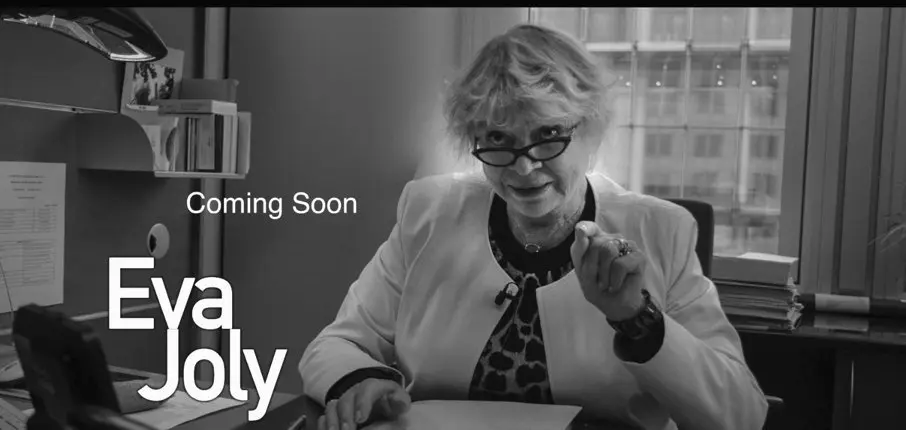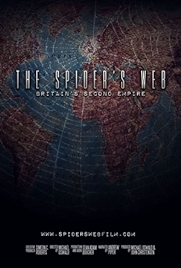An urgent, informative film asking all the right questions – or how the rich people stole all the money
Here in Brexit Britain we find ourselves in a peculiar situation. In spite of having done pretty well out of the European Union, what with various rebates, opt-outs and special deals, fifth richest country in the world and all that, the country suddenly rebelled, and stormed out of the arrangement in a strop, angry about something that no one can quite articulate – it might be the straightness of bananas or immigrants or democratic accountability, or something else entirely.
Meanwhile, the political left largely appear to have lost their connection to their working class powerbase, and now talk in a language that most people don’t understand (mysterious references to “social issues” really don’t cut it). This same former powerbase, meanwhile, seems to see no contradiction in buying arguments about “freedom” and “control” from people who live here but are domiciled for tax purposes in other countries (Lord Rothermere of the Daily Mail); people who actually live in tax havens (the Barclay brothers of the Daily Telegraph); or people who live in rival superstates (US citizen Rupert Murdoch of News International). And, most notably of all, from people based over here but whose undeclared allegiances are Atlanticist (how UKIP’s Nigel Farage and his paymaster Arron Banks love being photographed with the new US president).
How we got here isn’t the subject of Michael Oswald’s latest film, but The Spider’s Web: Britain’s Second Empire does shed some light on the miasma of weird that has taken hold of the zeitgeist, when, after 40 years of a “free market” experiment that has seen living standards for many stagnate or fall, people seem to be voting for more not less of the same thing and are blaming “globalisation” for policies masterminded and put into effect by their own governments.
In a previous film, 97% Owned, Oswald and co-writer Mike Horwath lifted the lid on the smoke and mirrors operation that is money – 97% of which is created by banks out of thin air every time they make a “loan” to somebody. If you’re wondering why property prices are so high…
In his Princes of the Yen, Oswald mainlined the work of economics professor Richard Werner in a wide-ranging film which, among other things, forcefully made the point that the most spectacular economic miracle in the post-War world came about not by the application of free-market principles, but by targeted lending by the Bank of Japan to specific industries in that country. This is known in the UK as being in the business of “picking winners”, something to be avoided at all costs.
Both these films painted a picture of a topsy-turvy world where things were not as we are often told they are – in one, money is created by magic and isn’t something that has to be finessed by finance ministers dancing the austerity tango; in the other, the command economy appears to have had its successes too – Japan, with no natural resources, becoming the world’s second richest country using principles that are socialist in everything but name.
The Spider’s Web adds to the picture, not by revealing that black really is white, but by showing that straight is actually rather crooked. Its thesis is that as the British Empire collapsed, the City of London, that square mile of financial mystery at the heart of the UK capital, transformed itself from being the financial auditor and organiser of a global system of colonial governance into the centre of Britain as a modern financial power.
Along the way we are reminded of the special relationship between the USA and the UK, one example of which was the run on the pound organised, it’s suggested, by the US when the UK refused to do its bidding in 1956’s Suez Crisis. Suez marked the point when the British Empire finally had to admit that the game was up – it was no longer a world power. On the upside, the Crisis gave a fillip to the emerging London Eurodollar market, a system outside the jurisdiction of the US Federal Reserve and at arm’s length from regulation by the Bank of England. This led, by accident and design, to London becoming second home to many US banks, the centre of a global network of trusts, and the spider controlling an archipelago of tax havens based in former outposts of the Empire.
If the Swiss use banking secrecy laws to hide money, the British use trusts to do the same work, says John Christensen, a former economic adviser to Jersey, a British tax haven parked in the Channel Islands. By setting up a trust, an individual, company or even vast agglomeration of companies can claim that this shell company operating out of a PO box in Bermuda, the Caymans or wherever, is the “owner” of their assets. And by being “foreign-owned”, the companies or individuals in question duck their tax obligations in their home country.
This has been of enormous use to rich people the world over. Headlines are periodically grabbed by various African dictators as they strip-mine their countries of wealth and ship it out to one tiny Caribbean island or another. But there are people closer to home. We see Prime Minster David Cameron – whose father ran just such a trust, the source of young David’s leg-up in life – making windy noises about “rooting out corruption” in the global system of trusts, when in fact the racket is almost entirely run from London.
“Up to half of all hidden offshore wealth may be hidden” in the UK’s tax havens, says anti-corruption campaigner and Member of the EU Parliament Eva Joly. These trusts operating out of former British colonies are nominally regulated already, by the Bank of England, who simultaneously claim that the territories whose finances they oversee are independent. It’s a Janus-facing system that works for the Bank, the territories and the wealthy individuals who benefit.
This is where the missing trillions of dollars are sitting that ought to be building roads and hospitals, in Africa most notably, but also to a large extent in the developed world.
Oswald has some erudite and passionate witnesses – the economist Michael Hudson, who claims that the entire British economy is supported by drug money, crime and illicit income. John Christensen, meanwhile, is a former Deloitte’s accountant, a director of the Tax Justice Network (www.taxjustice.net) who lectures on the iniquities of international finance – “They were all,” says the gamekeeper turned poacher, talking of his time advising companies in the Channel Islands, “involved in some kind of tax dodging or something worse.” Nicholas Shaxson, author of Treasure Islands: Tax Havens and the Men Who Stole the World, brings the zeal of the crusading journalist to his contribution, refreshingly using words like “steal” rather than anything fancier and less precise. And there’s the redoubtable Eva Joly, who wants a public register of the beneficial ownership of trusts – who gets the money – which would be a quick and efficient way of shining a light into some very dark corners. “Ordinary people are paying taxes; the rich are not,” she says. “This is leading to populism”. Which ties the film neatly into the “where we are now” of the bizarre global swing to the right. And without getting too conspiratorial about it, no wonder certain powerful forces were keen to move the UK away from the EU.
Made for only £4,000, closely argued and consisting mainly of talking heads interspersed with stock archive footage, The Spider’s Web comes across a bit like an Adam Curtis film made without the armies of researchers and technical crew. If Oswald is a bit slow to get to the “why here? why now?” that is most documentaries’ leaping-off point, he does admirably map a vast terrain that could accommodate at least ten other films – on subjects as various as why big companies have such a cosy relationship with the taxman; the system of organised theft that is the Private Finance Initiative (or versions of it the world over); or the unregulated power of the global accounting behemoths such as Deloitte, KPMG and PwC.
If you live in the UK or the US – bastions of what is called the Anglo Saxon version of capitalism – you live in countries that have over the past few decades “financialised” their entire economies, the lack of investment elsewhere leading to a feedback loop of de-industrialisation. Michael Oswald’s film argues that there has been no inevitability to this process: it was a deliberate exercise to make the rich even richer while incidentally impoverishing the rest. And he manages to show how this global con-trick has been wrought without coming across as some cheerleader for the politics of envy. That’s quite a trick.
Watch The Spider’s Web on Amazon Prime Video
I am an Amazon affiliate
© Steve Morrissey 2017


I’ve just come across this gem amidst all the other pea-brained dross on Netflix. My feelings of betrayal are HUGE – clearly one is expected not to trust one’s MP, or PM, to be honest & to fulfil the terms of their mandate from “we, the people” ethically. Only one way to bring down the system & that is to stop paying taxes. But people are effectively controlled, sufficiently deluded & comfortable enough to believe the lies & corruption & accept whatever meagre hand-outs are offered by gvts today. Or they simply find their own ways to join the ranks of the rich & greedy. This film was made 5 years ago – how quickly things have deteriorated since & who really cares.